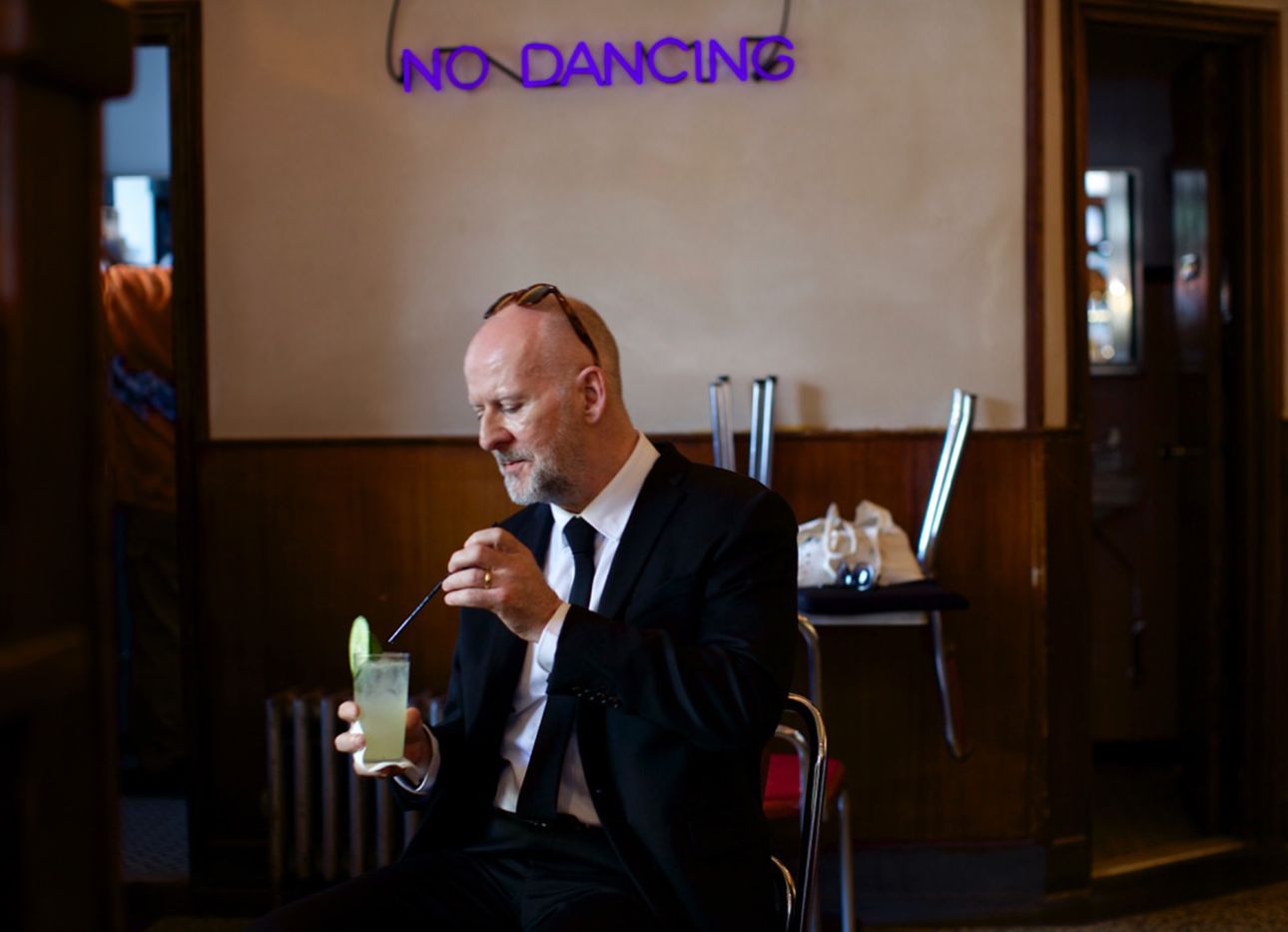
The Media That Gets Philosopher Simon Critchley’s Wheels Turning
The British-born, Brooklyn-based philosopher Simon Critchley has no shortage of interests. He’s written, in his refreshingly approachable, personal prose, about topics including Plato, the meaning of money, Mormonism, David Bowie, and the Liverpool Football Club for The New York Times, where he moderates its contemporary thinkers opinion forum, The Stone. For his forthcoming book, Bald (Yale University Press), out April 27, Critchley—who teaches philosophy at The New School for Social Research, and was the guest on Ep. 42 of our Time Sensitive podcast and Ep. 3 of our At a Distance podcast—compiled 35 of his favorite Times essays, forming an engaging series of short reads that suggest new ways of understanding the world. We recently spoke with Critchley about the media he consumes, which includes a lot of reading with his ears.
How do you start your mornings?
They’re depressingly predictable. I’m a radio-head, so the first thing I do when I achieve semiconsciousness (which is usually determined by my bladder) is turn on WNYC in the background, at very low volume. I’ll be drifting in and out of sleep while absorbing things.
The Times is my main news source, certainly for American news, and I’m still attached by the umbilical cord to the BBC. So I listen to Radio 4’s Today program, which starts at 6 a.m. in the U.K. If I’m having a late night, I’ll often stumble in from a cocktail bar and start listening to its morning news show. I like being in two time zones at once.
What are your daily reads?
I listen to a lot of podcasts. I listen to Red Scare, because its hosts, Anna Khachiyan and Dasha Nekrasova, make me laugh. [Writer and musician] Ross Simonini’s Subject, Object, Verb is really good, too—I like his mind. I prefer the podcasts that take the time to go deep into odd subjects. For example, Routine, Ritual, Eulogy is a show about the everyday routines of writers. Another, The Butterfly Effect, is hosted by [author and journalist] Jon Ronson. It’s a long podcast on the history of online porn. There’s a very good writer, Hari Kunzru, whose podcast, Into the Zone, I highly recommend. He’s English, with an Indian dad, and tells fascinating stories.
Peoples’ ears are open now, so you can do long-form audio experiments. During lockdown last year, I did this eighteen-episode podcast with the Onassis Foundation called Apply-Degger, on German philosopher Martin Heidegger’s [437-page book] Being and Time. I explain it page by page. It’s designed for that tiny sliver of the world’s population who want to be guided by this very important philosophical work. After it was released, I got a message from a guy in Japan who listens to it while cycling to work. I thought, That’s wonderful—and would never happen with a book. Our eyes are tired because we’re looking at screens all the time. It’s the golden age of audio. People are using their ears to read, and that’s not bad.
What are you watching, reading, or listening to for fun?
When I want to switch off, I watch TV. For fun, I’ll watch Ancient Mesopotamia: Life in the Cradle of Civilization, or something really nerdy and deep.
I recently became obsessed with country music: the Carter Family, the Louvin Brothers, the Stanley Brothers. I like two-part harmony. I thought Ken Burns’s documentary on the subject was very good. Right now I’m listening to Johnny Cash read the entire New Testament. This is the best thing ever. It’s available on Hoopla, which is a service I strongly recommend. You can access it with your library card.
What writers are you reading now?
I’m currently teaching a class called Pandemic Mysticism. There’s a scholar, Caroline Walker Bynum, whose latest book, Dissimilar Similitudes: Devotional Objects in Late Medieval Europe, is one I’m working through. I like reading proper scholarship by someone who really knows what they’re talking about, and she’s the most prominent medievalist in the world. She writes clearly, and gracefully.
Any guilty pleasures?
No, I don’t feel guilty about any of them. I have trashy taste, so I feel no shame. I watch a lot of comedy, like The Larry Sanders Show, or my most recent discovery, Strangers With Candy, to keep my mind sharp. And to remember, Oh, right, this is what we used to do: sit around and say funny things to each other in order to make ourselves laugh. Now we just sit around feeling sad! Watching comedy elevates and liberates.